Great Playoff Goaltending Performances
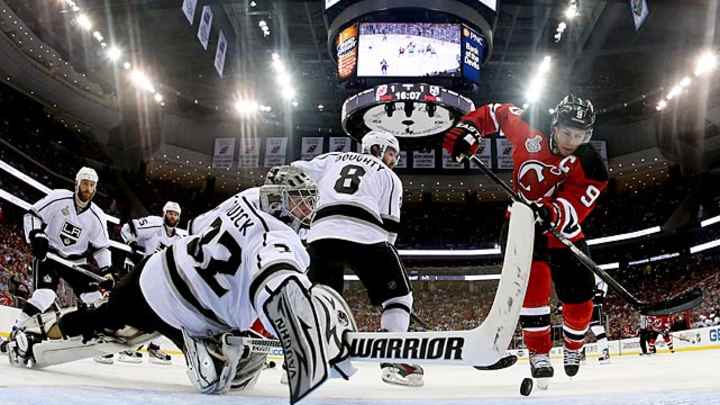
Great Playoff Goaltending Performances
Jonathan Quick

The Kings' crablike goalie was spectacular while allowing only 29 goals in 20 postseason games as Los Angeles became the first eight seed to capture the Stanley Cup. He saved his best for last in a duel with the Devils' venerable veteran Martin Brodeur, as the New Jersey was able to get only seven pucks past him (two were deflected) during their six-game final. His 1.41 goals-against average and .946 save percentage set NHL marks for goalies who played at least 15 playoff games. For his efforts, Quick was awarded the Conn Smythe Trophy as the postseason MVP.
Tim Thomas
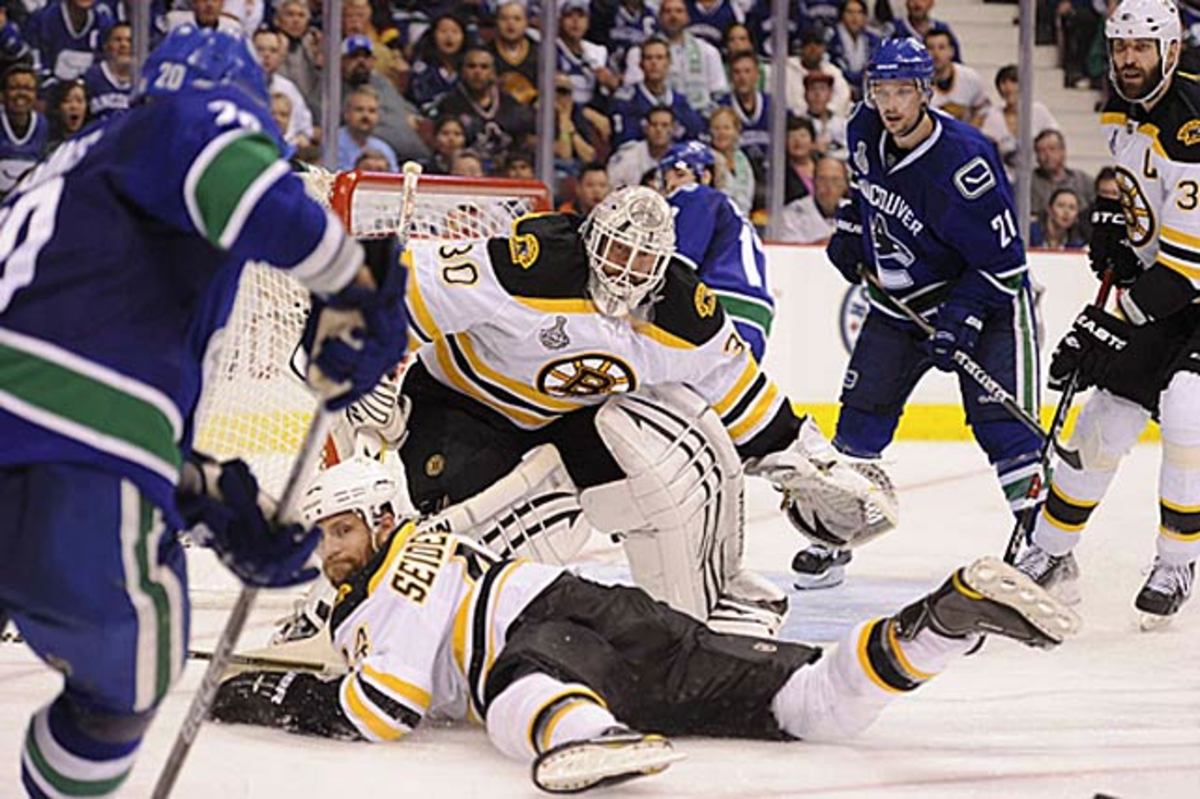
Completing an epic comeback from a hip injury, the 37-year-old Thomas backstopped Boston to its first Stanley Cup since 1972 and won the Conn Smythe Trophy in the process. Notable for his unorthodox scrambling style, Thomas stopped 238 of Vancouver's 246 shots (.967 save pct.) in their seven-game final series, which included two of his four postseason shutouts. In all, he posted a stingy 1.98 goals-against average for postseason. He even displayed a feisty streak, smacking Vancouver's Alex Burrows in the head and cross-checking Henrik Sedin.
Chris Osgood
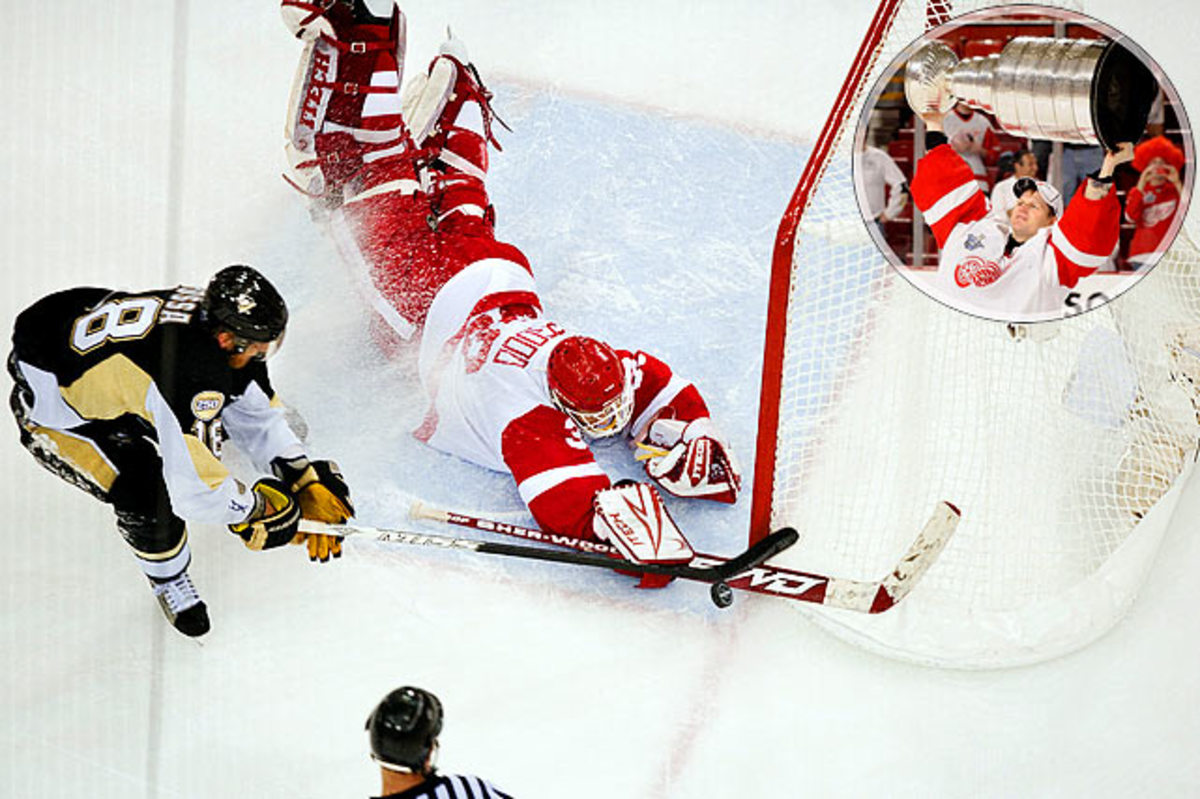
When aging veteran Dominik Hasek, 43, looked shaky midway through Detroit's first-round series against Nashville, coach Mike Babcock tapped Osgood, who had been in a regular-season rotation. Osgood, who had the best GAA in the NHL that season (2.09) surrendered only 30 goals in 18 playoff starts and became the fourth goalie in NHL history to open the Stanley Cup Final with back-to-back shutouts, as the Red Wings downed the Penguins in six games.
Cam Ward
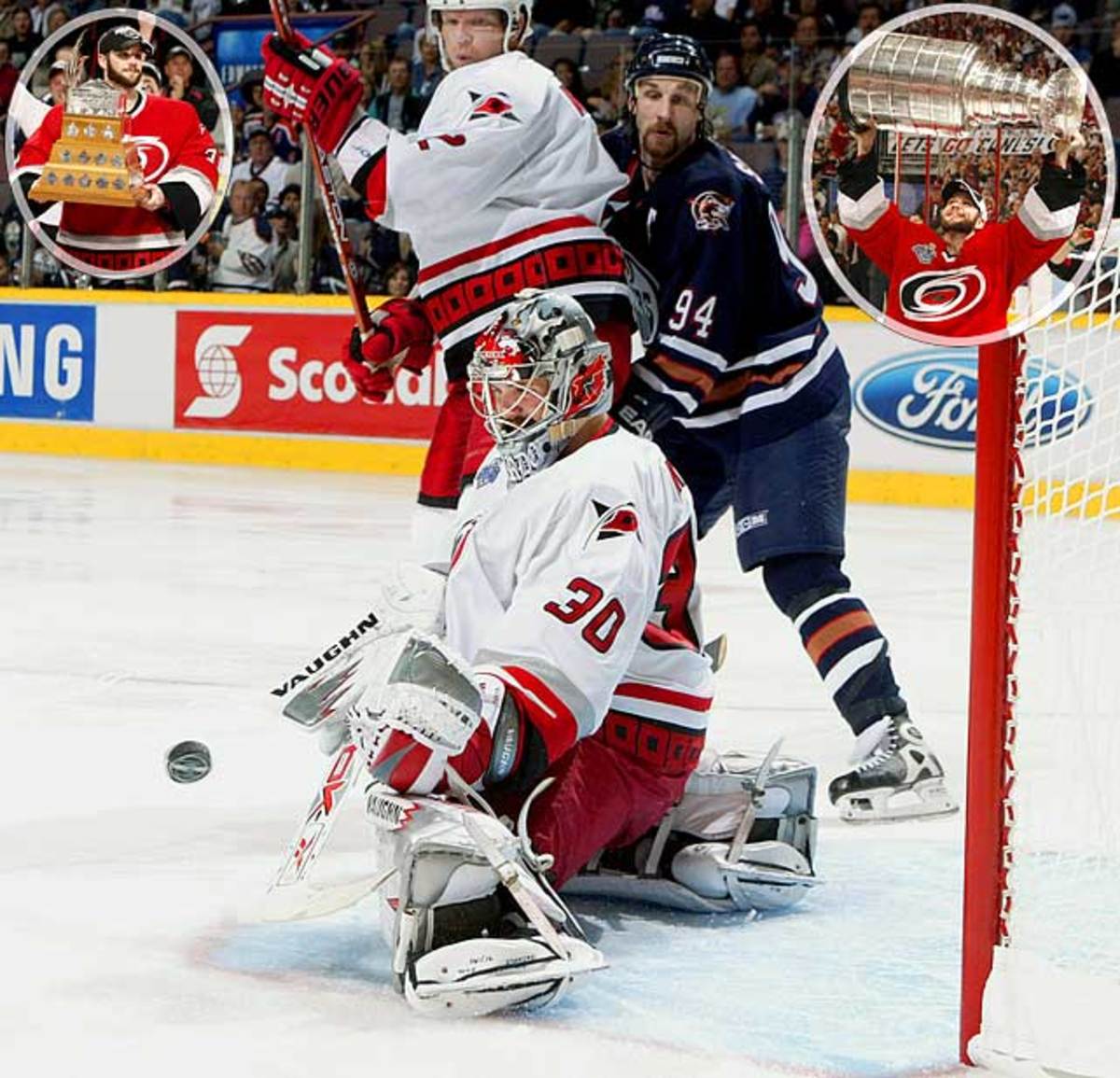
The 14th goalie to be awarded the Conn Smythe Trophy as playoff MVP, Ward was also the first rookie since 1987 to win it. A backup that season, Ward replaced struggling veteran Martin Gerber in the first round vs. Montreal and anchored Carolina as it won its first Stanley Cup. He had a 2.14 GAA and .920 save percentage in 23 games, culminating in a thrilling seven-game final vs. Edmonton. "The kid came in when we were down and out," said captain Rod Brind'Amour. "He brought us to life. Goaltending wins championships, make no mistake about it. We had the best goalie in the playoffs."
Dwayne Roloson
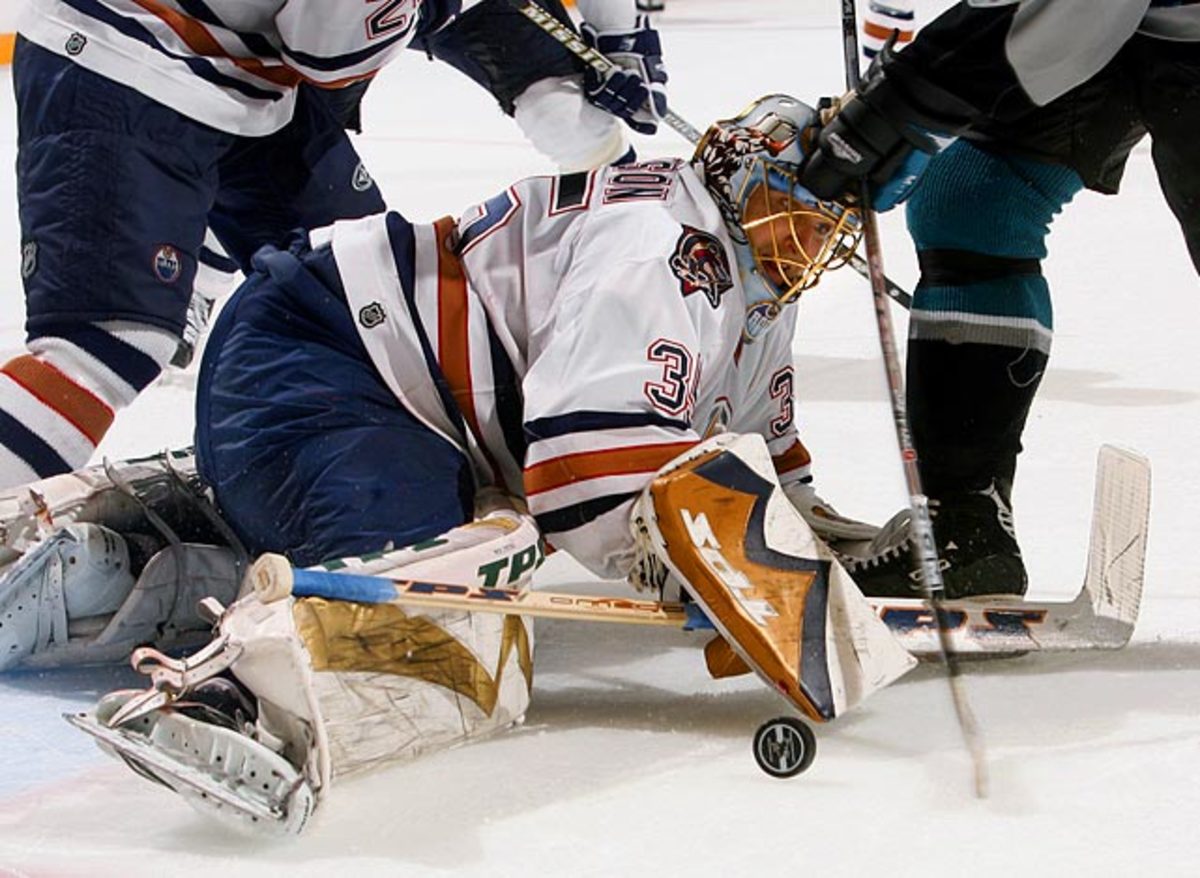
The 36-year-old journeyman was acquired from Minnesota at the 2006 trade deadline for a first-round pick and backstopped the Oilers on a surprising run all the way to the Stanley Cup Final. (They were first eighth-seeded team to get that far.) Along the way, Roloson (2.33 GAA) stopped the Red Wings, Sharks (the Oilers rallied from 0-2 hole) and Ducks (who outshot the Oilers 183-121 in the series). Unfortunately, he hurt his knee in Game 1 of the final and did not play again as the Oilers gamely fell to Carolina in seven games.
Jean-Sebastien Giguere
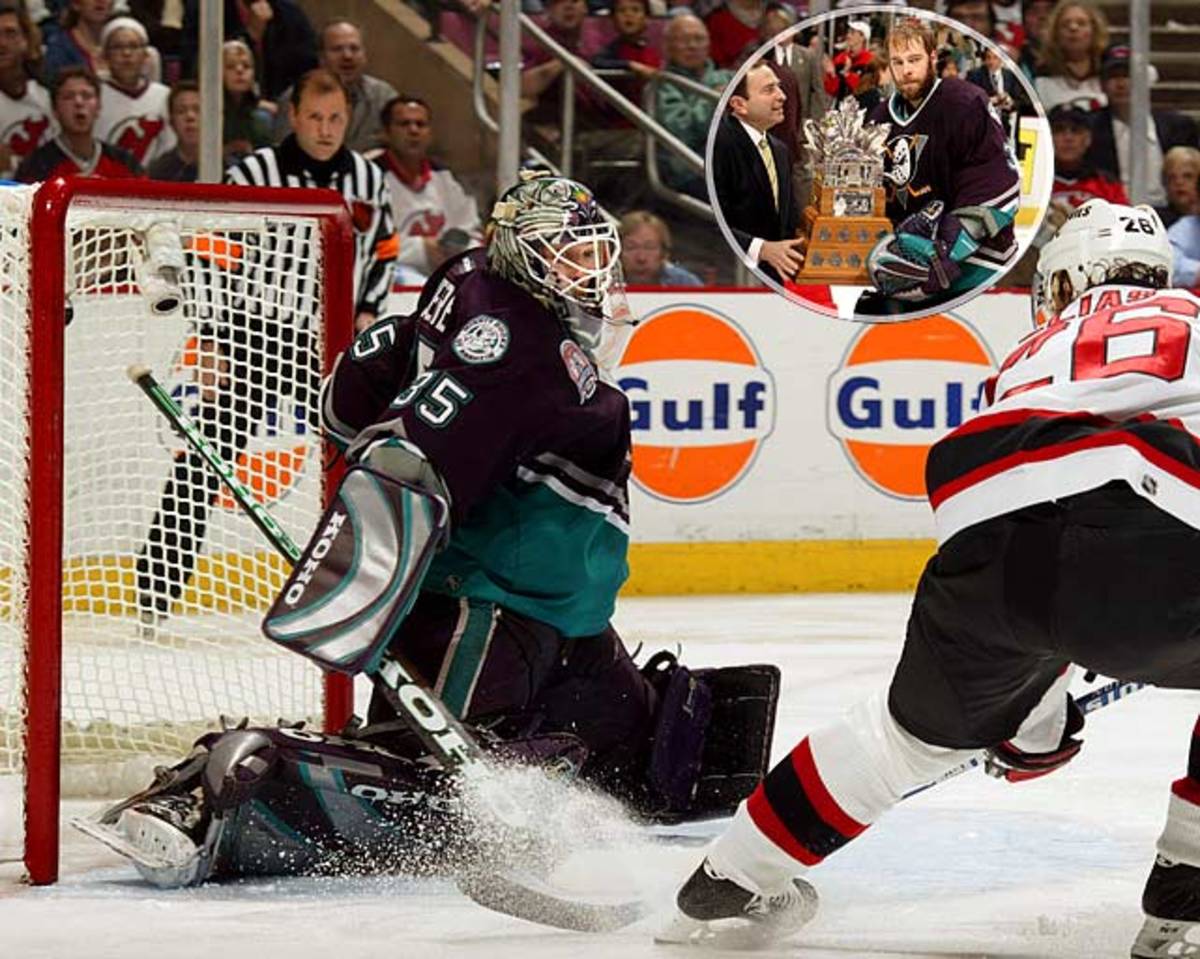
The fifth and most recent playoff MVP from a team that lost the Cup final, Giguere, 25, had a breathtaking run with the upstart Mighty Ducks of Anaheim. Five of his 15 wins were shutouts and he posted a miserly 1.62 goals-against average in 21 postseason games while knocking off Detroit, Dallas and Minnesota before falling to New Jersey in seven games.
Martin Brodeur
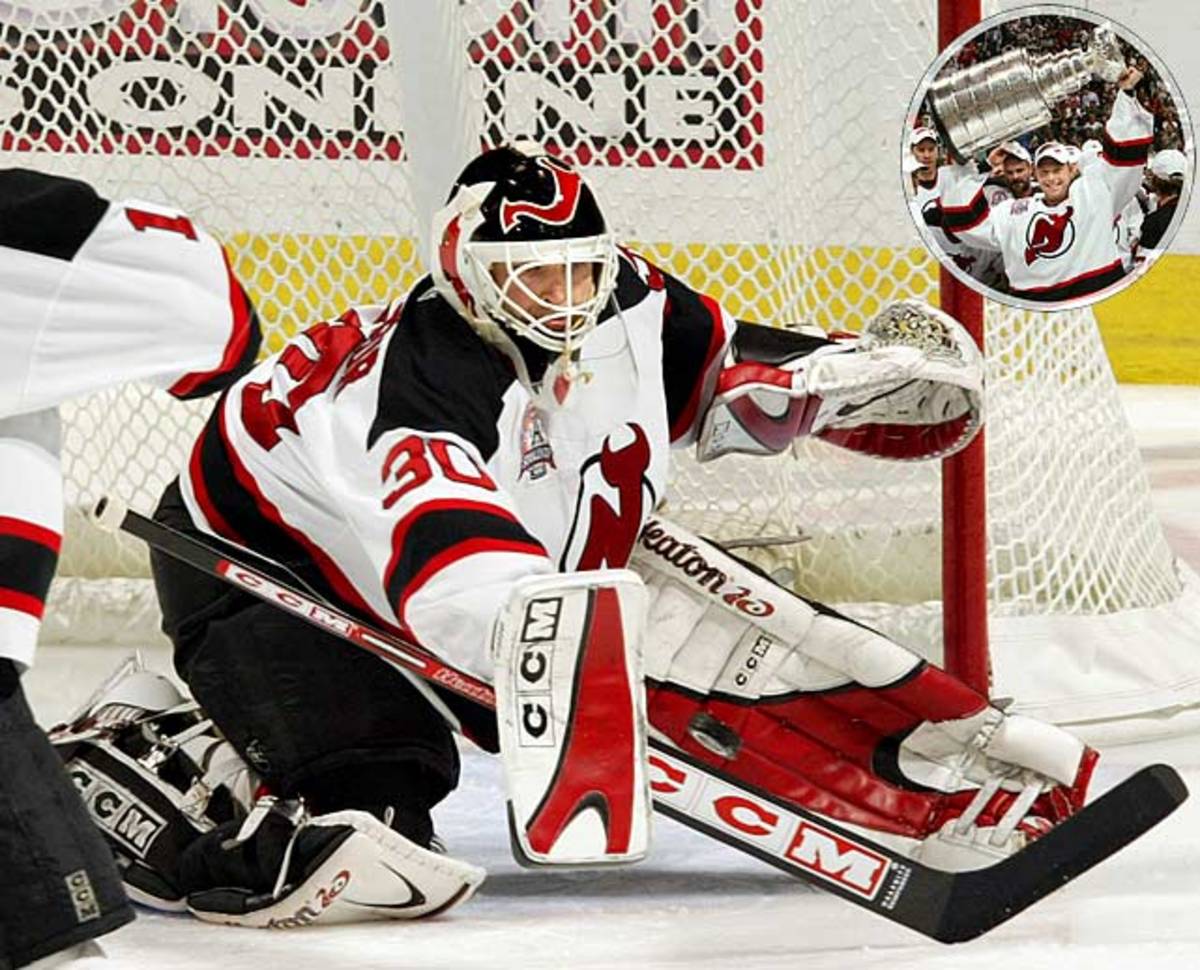
The NHL's career leader in wins and shutouts has won three Stanley Cups, but not the Conn Smythe Trophy. Nevertheless, his playoff resume is laced with highlights, especially the 2003 postseason when he had a 1.65 GAA in 24 games and set an NHL record with seven shutouts en route to the Cup.
Dominik Hasek
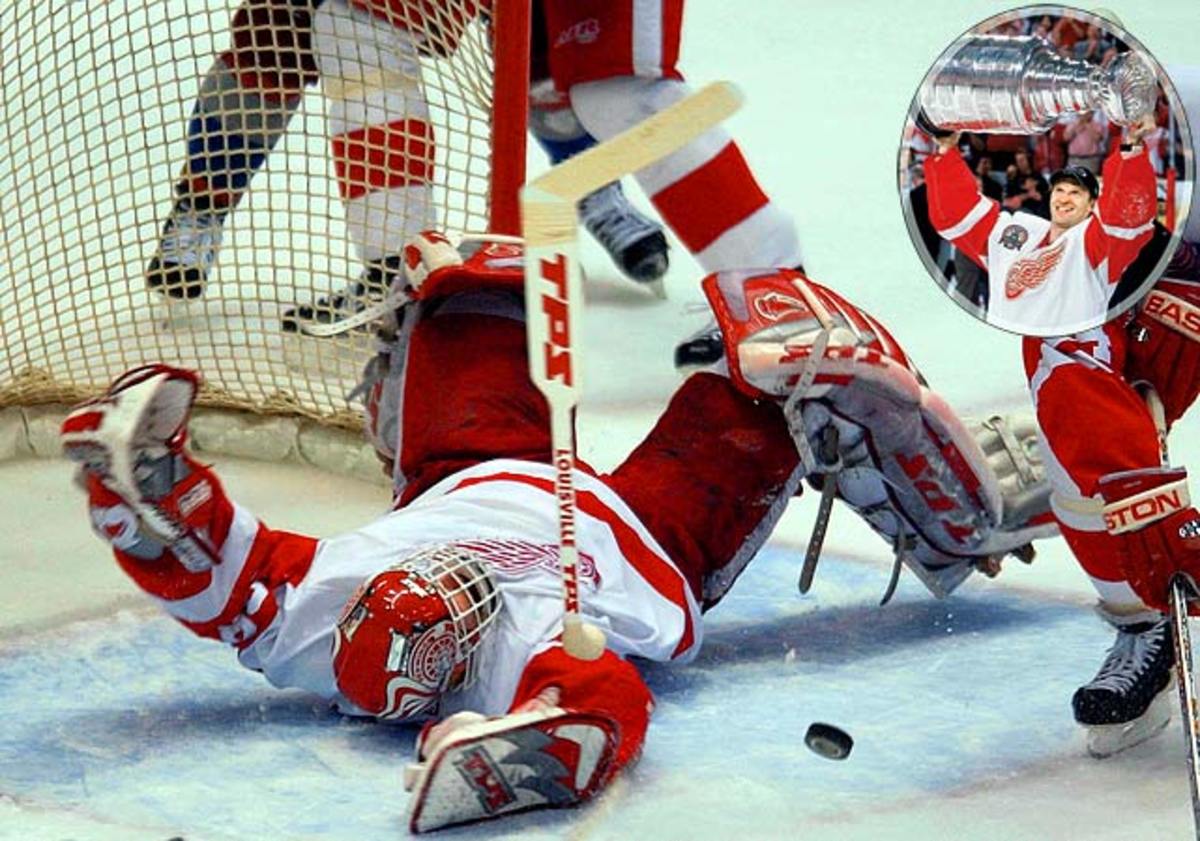
After falling painfully short with Buffalo in 1999, the Dominator finally captured the first Stanley Cup of his illustrious career by posting a 1.86 GAA and six shutouts in 23 games. His finest performance of that postseason came in the seven-game Western Conference final against rival Colorado when he shut out the Avalanche in the final two games.
Patrick Roy
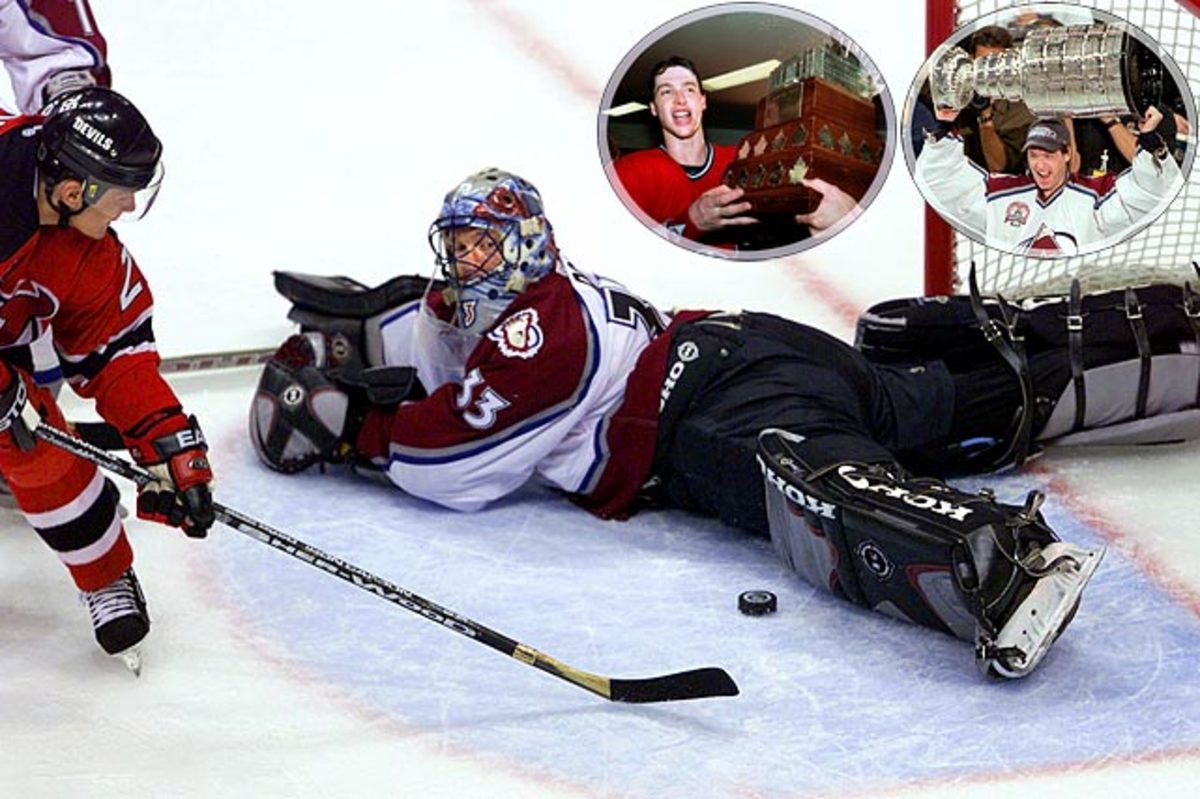
The fiery butterfly master established his legend by winning the first of his record three Conn Smythes when he was a 20-year old rookie. Roy, who remains the youngest Smythe-winner, backstopped Montreal to the 1986 Stanley Cup with astonishing numbers (15-5, 1.92 GAA in 20 games). His greatest postseason MVP performance came in a Colorado sweater in 2001, as he went 16-7 with four shutouts and a 1.70 GAA, beating New Jersey in a thrilling seven-game Cup final.
Mike Vernon
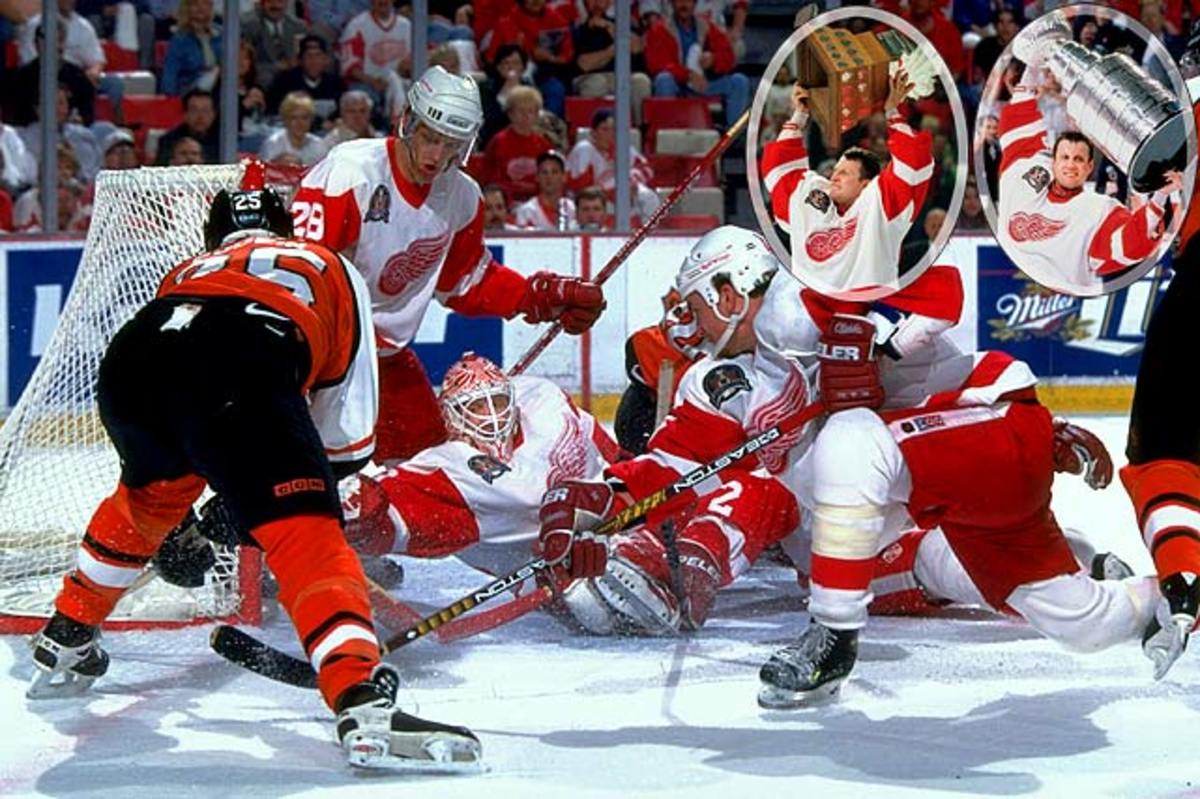
A veteran of two Stanley Cup finals with Calgary -- he lost to Montreal in 1986 and won the Cup in 1989 --Vernon was acquired by the Red Wings in 1994 and helped them reach the '95 final. But `97 was a truly special year. After starting the season as Chris Osgood's backup, Vernon was made the playoff starter by coach Scotty Bowman and he won 16 games (with a 1.76 GAA and .927 GAA) and the Conn Smythe as the Red Wings captured their first Stanley Cup in 42 years, with a sweep of Philadelphia.
John Vanbiesbrouck
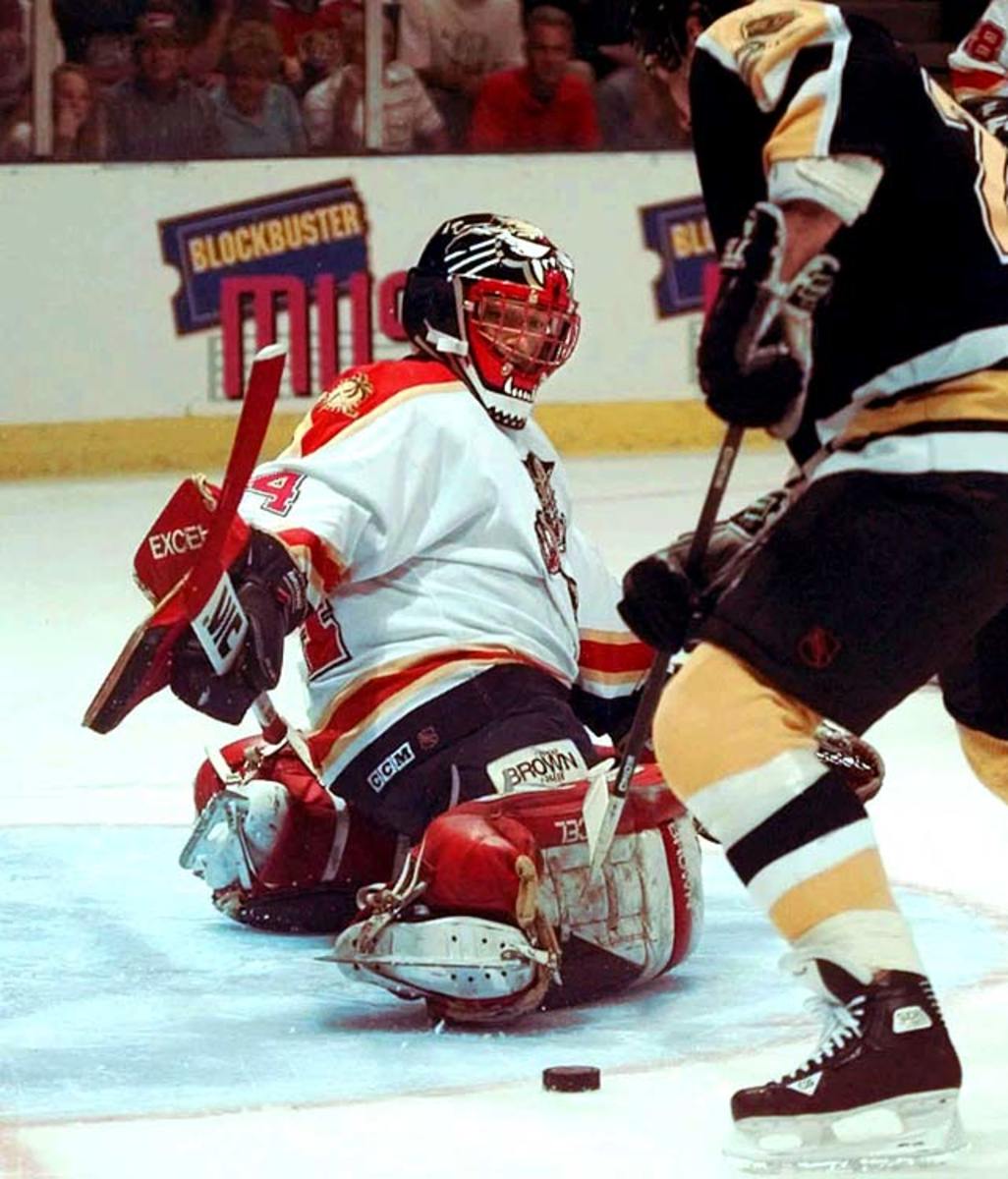
Florida's first choice in the 1993 expansion draft, the former Rangers star was a 32-year-old veteran and All-Star when he backstopped the upstart Panthers all the way to the `96 Stanley Cup Final. Beezer was a solid 12-10 with 2.53 GAA and .924 save pct. while knocking off the Bruins (in five), Flyers (in six, including two OT thrillers) and Penguins (in seven) before getting swept by Colorado in the final.
Bill Ranford
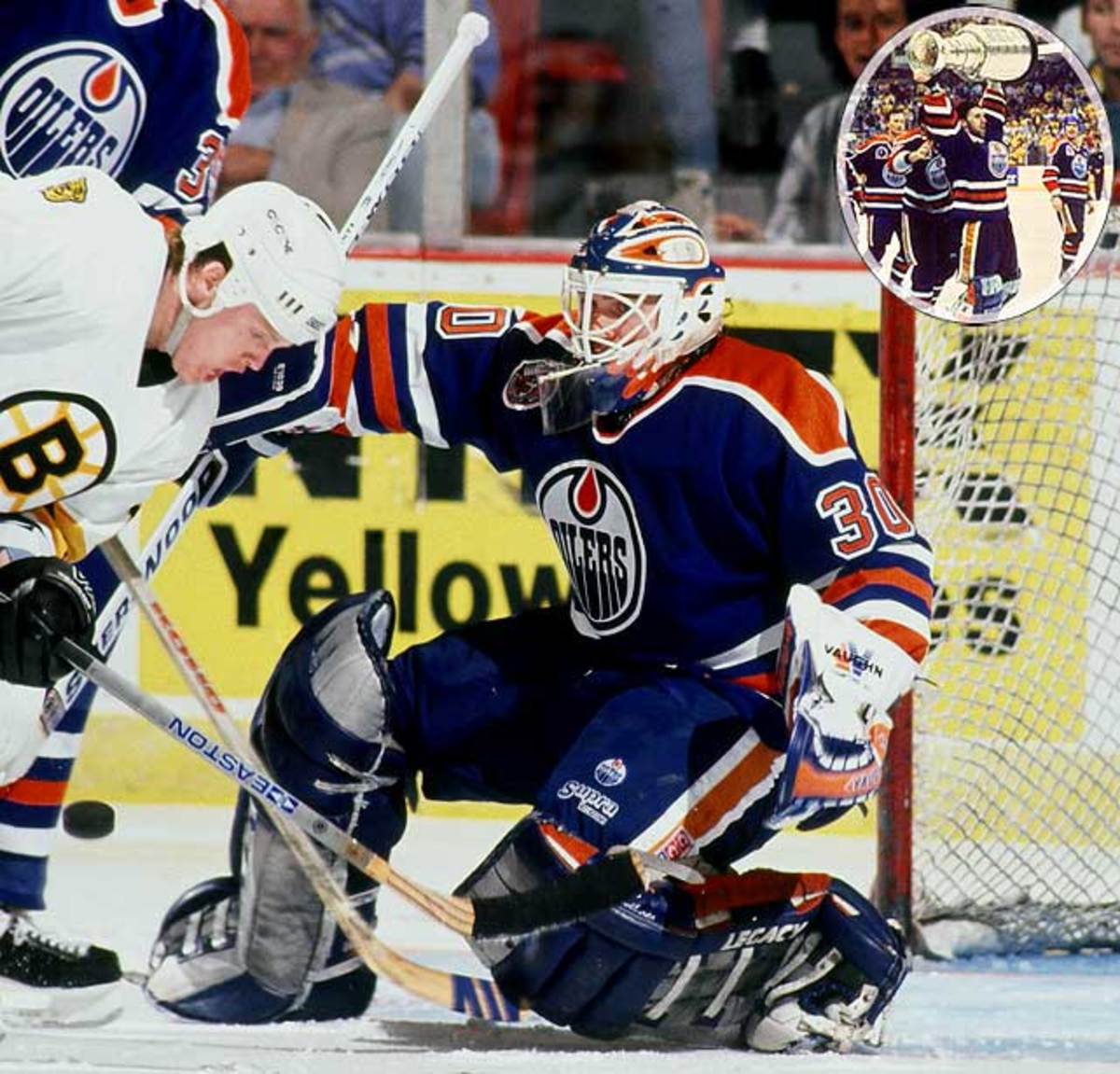
The MVP of the Oilers' fifth and last (to date) Cup, the backup netminder was acquired from Boston in 1988, replaced the great Grant Fuhr as starter the following season, and rescued Edmonton from a 3-1 first-round hole against Winnipeg. Ranford, 23, came back to haunt his old team in the Cup final by making 50 saves in a 3-2 triple win in Game 1 that stands as the longest overtime match in Cup finals history. His postseason slate that year: 16-6 with a 2.53 GAA in 22 games.
Ron Hextall
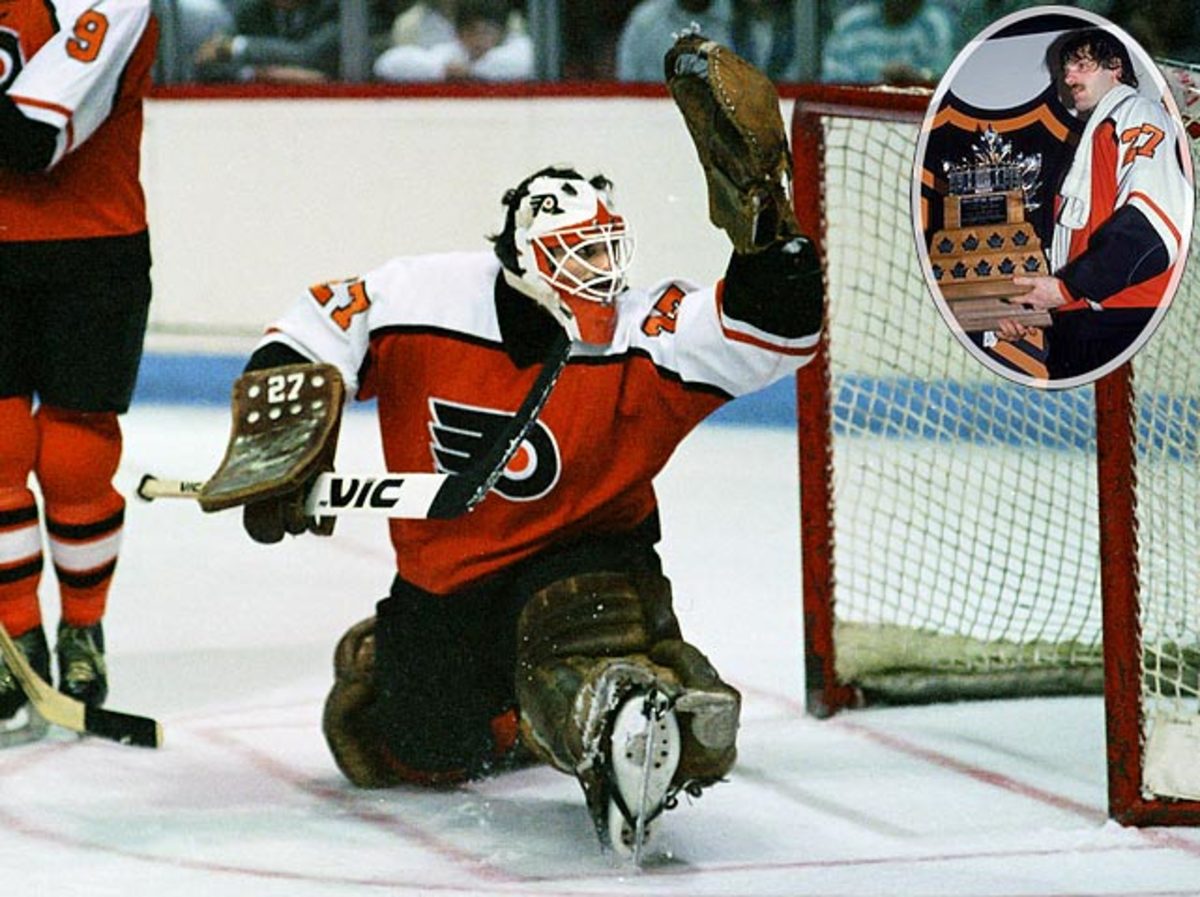
A superb puckhandler as well as a feisty hothead, Hextall was a 22-year-old rookie when he edged out veterans Bob Froese and Chico Resch for the starting job. He went on to win the Vezina Trophy as well as the Conn Smythe with 2.77 postseason GAA and .908 save pct. even though the Flyers fell in a seven-game Cup final to Wayne Gretzky's Edmonton Oilers. Hextall made 40 saves in Philly's 3-1 loss in Game 7.
Billy Smith
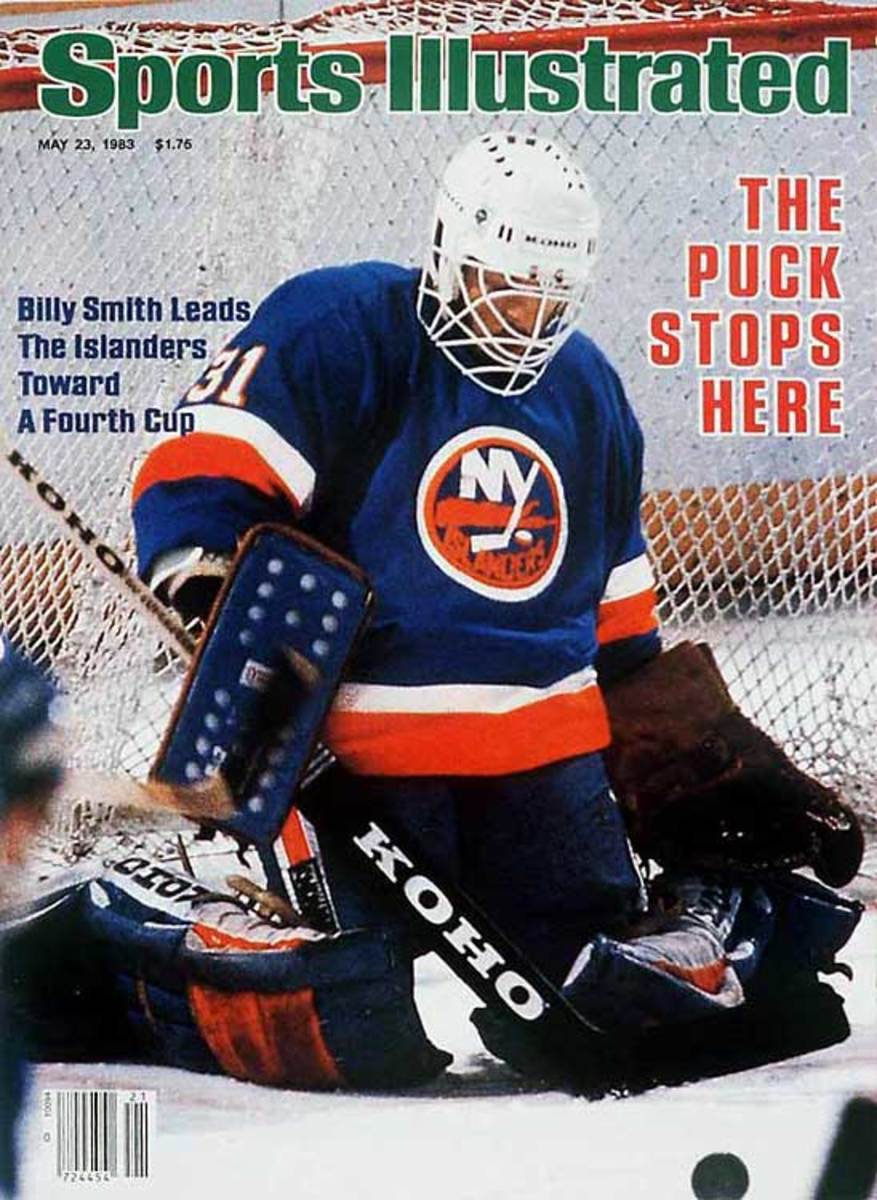
Renowned as the NHL's greatest money goaltender, the combative Smith led the league in postseason wins each season from 1980 through 1984. He capped the Isles' run of four straight Cups by going 13-3 with 2.69 GAA, including a four-game final sweep of the high-powered Oilers in which he allowed only six goals and enraged the citizens of Edmonton by cutting down Wayne Gretzky with a swing of the goalie stick.
Bernie Parent

The Conn Smythe-winner in both of the Flyers' Cup campaigns, Parent was 29 years old and in his ninth NHL season when he won the silverware for the first time. The Flyers had traded him in 1971 to Toronto where he was mentored by the great Jacques Plante. After a brief stint in the rival WHA, Parent returned to the Flyers for the 1973-74 season and had a stingy 2.02 postseason GAA in 17 postseason games while upsetting the Bobby Orr-Phil Esposito Bruins for the Cup.
Ken Dryden
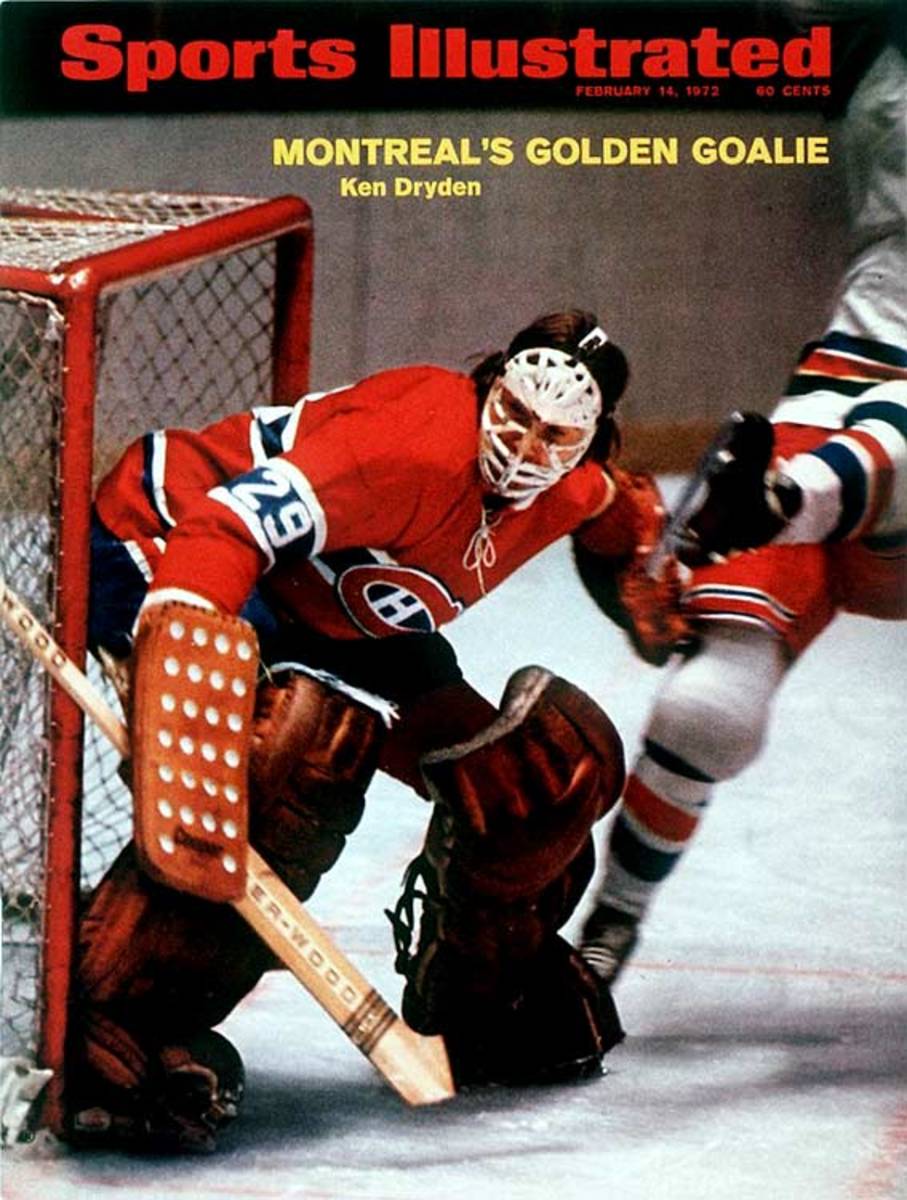
The lanky Dryden established Montreal's postseason legend of rookie excellence by coming out of the minors late in the 1970-71 season and leading the Habs to the Cup, the first of six with him in net. Dryden, who earned Conn Smythe honors, beat the Bobby Orr-Phil Esposito Bruins in an epic seven-game first round (Esposito, who had scored 76 regular-season goals, was held to three) and captured the Cup by snuffing Chicago in another series that went the distance. His final numbers: 12-8, and 3.00 GAA.
Glenn Hall
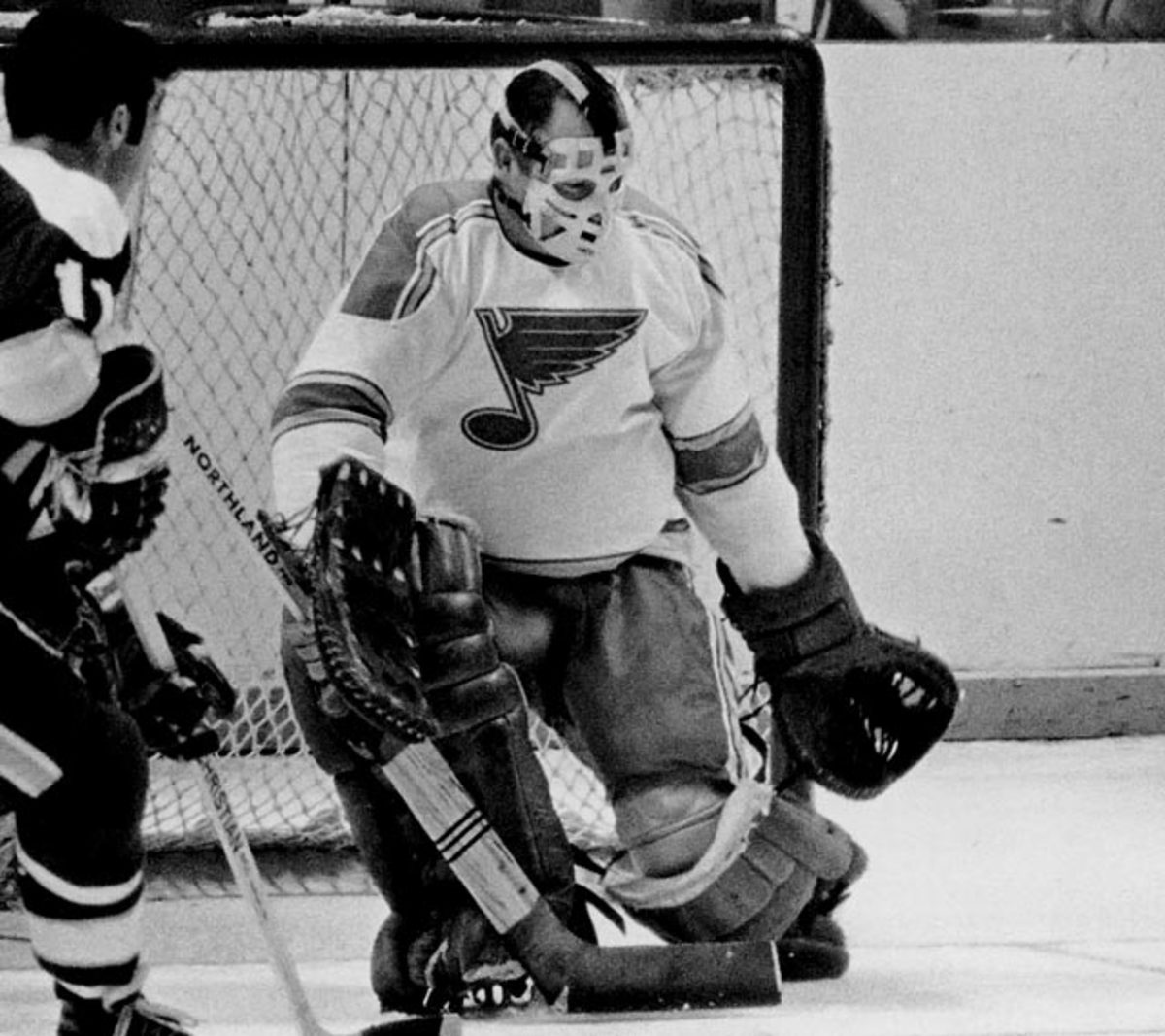
The Blues were an anomaly -- an expansion team that reached the Stanley Cup Final in each of its first three seasons. They lost each time, but Hall of Famer Hall, whom they had chosen in the expansion draft even though he was 36 years old, put up a valiant, Smythe-winning effort that was reflected more by his GAA (2.43) than his won-loss mark (8-10).
Roger Crozier
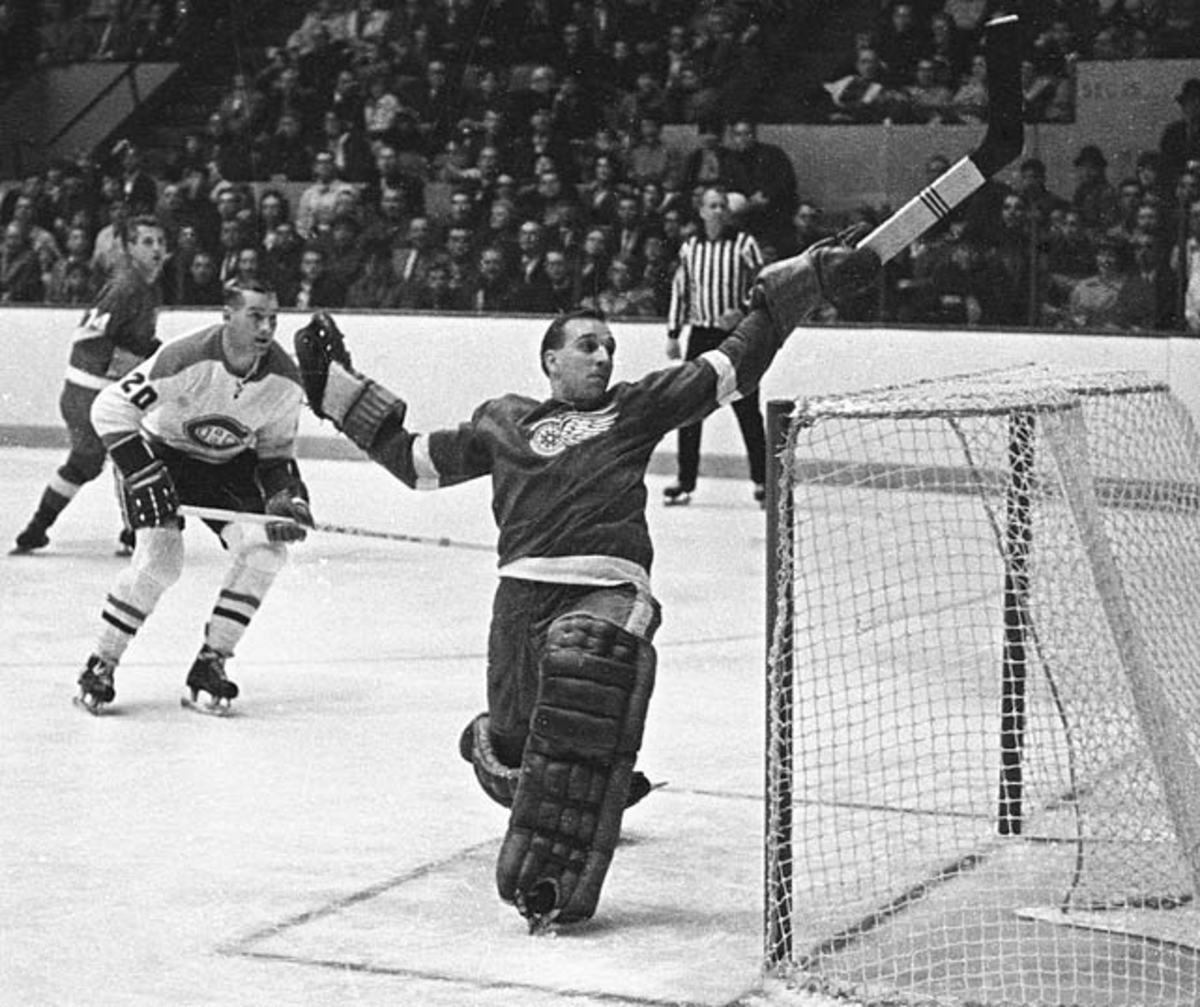
After recovering from an early-season bout of pancreaitis, the sophomore netminder (he won the Calder Trophy as rookie of the year for 1964-65) led the NHL in shutouts (7) and carried the Red Wings past Chicago and into the Stanley Cup Final. Detroit lost to Montreal in six games, but Crozier became the first player awarded the Conn Smythe in a losing cause, after posting a 2.34 GAA in 12 games. Playing on a sprained ankle, he heroically lost Game 4 by a heartbreaking 2-1 score.
